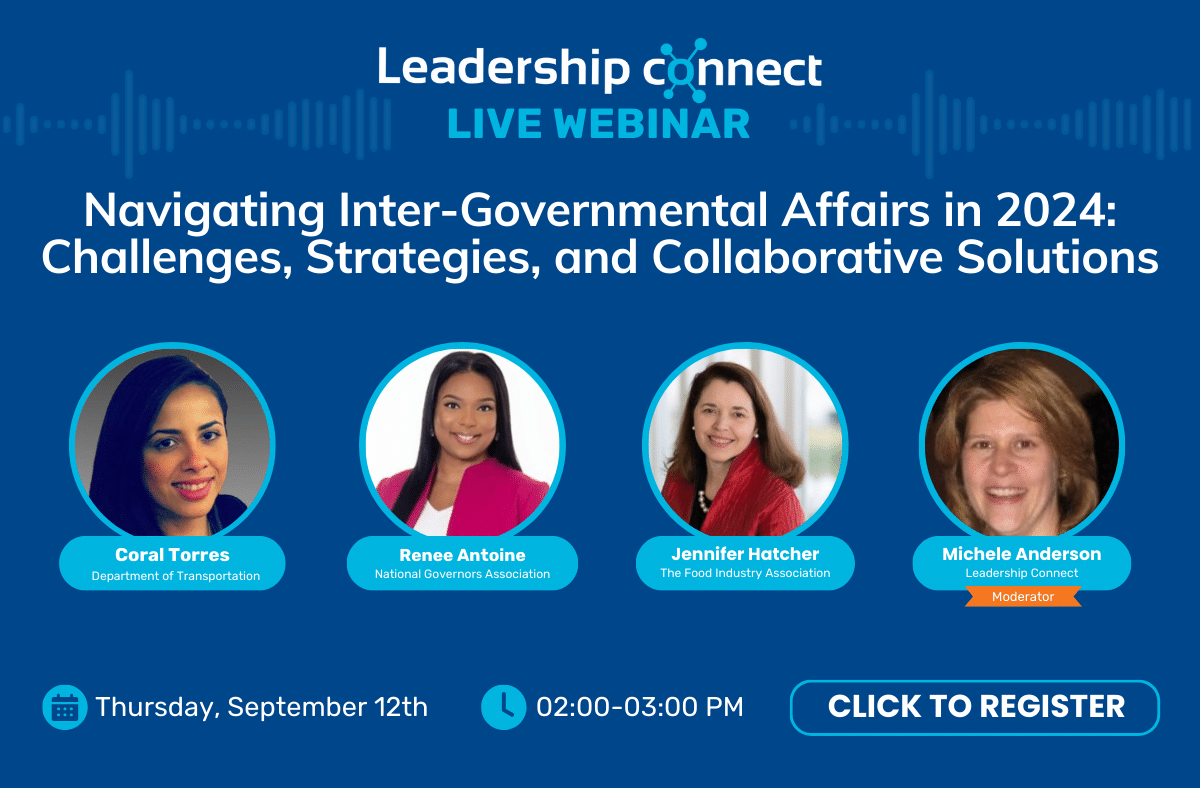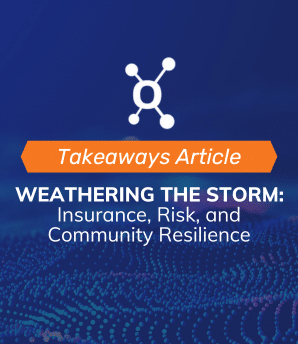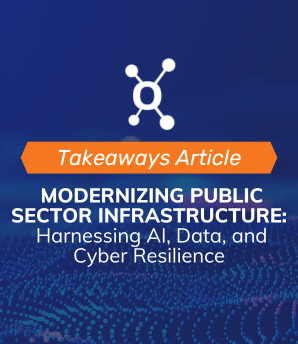On September 12, Leadership Connect hosted a webinar featuring three experts from across the spectrum of inter-governmental affairs. The panel gathered to discuss the evolving landscape of their work including its evolution, current challenges, and future solutions.

At the heart of the webinar was the idea that collaboration and stakeholder engagement are crucial for building the trust needed for long-term, effective relationships between different levels of government. Here’s a breakdown of the key takeaways from the themes of the overall message:
- Inter-governmental collaboration and communication are essential to success
- Establish a plan to adapt through transition
- Stakeholder engagement and education help drive policy
- Consider practical strategies for the future
Dive deeper into each of these takeaways below! Missed the conversation? Don’t worry – watch the entire thing here, and keep an eye on our Events Page to make sure you don’t miss out on the next exciting conversation.
The Three C’s: Communication, Collaboration, Coordination
One of the most highlighted trends from the webinar was the emphasis on the “Three C’s”—Communication, Collaboration, and Coordination. Here’s a closer look at these elements:
- Communication across levels: Effective communication is critical among state, local, and federal governments. A strategic plan for communication is necessary to avoid misunderstandings and ensure unified efforts. Consistent delivery of information, messaging, and data helps ensure all levels of government are aligned and ready for reactive situations like natural disasters or public health crises.
- Prepositioning and coordination: Prepositioning resources and creating joint-office efforts can streamline inter-governmental workflows. Finding the right balance between state and federal resources, especially during disasters, ensures that states are prepared while still having quick access to federal support when needed.
- Reimagining partnerships: The panelists encouraged exploring new partnership models and how they can impact funding and resource allocation.
Adapting to trends
The webinar also addressed the importance of adapting to evolving trends and challenges through turnover, rather than reinventing the wheel time and time again.
The panelists suggested implementing clear blueprints and guidelines for the purpose of seamless transitions in and out of all governmental offices. Having these steps in places helps maintain continuity and reduce disruptions. Having a system of education and training for new officials in place ensures they are well-prepared to handle their roles effectively.
These recommendations coincide with the panelists’ earlier point that preparation and prepositioning across governments and across party lines is the key to success in government affairs and policy development.
Enhancing stakeholder engagement
Our panelists emphasized the importance of engaging stakeholders effectively throughout the conversation. They noted that current trends in inter-governmental affairs have resulted in an influx of stakeholders, making engagement and networking even more important.
For example, newer business models resulting from recent infrastructure laws provide more opportunities for stakeholders to apply for funds, expanding their reach and network. Connecting with these stakeholders and expanding education is of the utmost importance in policy endeavors, as providing education and technical assistance helps stakeholders understand and leverage available opportunities to drive policy forward efficiently.
The panelists encouraged our audience to push for more face-to-face meetings and onsite visits with stakeholders and state associations to help build trust and foster relationships.
Lastly, the panelists touched on the need for more sophisticated public and private sector partnerships. Encouraging partnerships between the private and public sectors can drive innovation and provide insights into new technologies and complexities.
Strategies for the future
The future of inter-governmental affairs was an exciting topic our panelists covered throughout the conversation. Our three experts left our audience with some useful bits of advice to consider as they move forward in the space:
- Never underestimate the power of trust: Establishing and maintaining trust between agencies, governments, consumers, and stakeholders is foundational.
- Establish clear guidelines: Developing clear guidelines and structured pipelines of communication ensures a swift response to incidents when information is shared in a digestible way.
- Invest in cybersecurity: Ensuring robust cybersecurity measures are in place to protect sensitive information.
- Identify data gaps: Collaboration between private and public sectors to identify and address data gaps is critical for effective decision-making and policy advancement.






